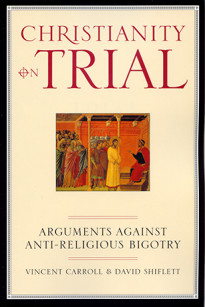American Protestantism has lead the way in using modern technology to spread its gospel. Radio and television have long been the preferred method of evangelism for small Protestant groups (usually “fundamentalist” or “evangelical,” however you want to construe those labels historically) that have the money, and when you think about it, it makes perfect sense. Protestantism, though it claims to be a unified body of believers — a great invisible, church, “unified in Christ” — is really the biggest religious market in the world. Sure, they all believe in Jesus, but each group wants you to support its version of Jesus. So, much like Pepsi and Coke battling for your soft drink dollar, Rod Parsley is going head-to-head with Benny Hinn, trying to get you to send your “seed offering” (and you just know what some pervert has done…) to his group.
It seems that America no longer holds a monopoly on commercial religion. Indian Gurus are catching on to the fact that not all spiritual teaching has to be done in an ashram.
As the [Indian] national economy blossoms, the role of the guru as someone who helps his followers find enlightenment is evolving: Many spiritual guides are now smooth marketers with, often enough, a considerable knowledge of how to maximize their commercial appeal.
Many gurus have been forced to revolutionize their practices — packaging and aggressively marketing their religious services to cater to the changing desires of the consumer. Some have adopted the style of Western televangelists to promote their message.
Maybe a Hindu version of TBN is in the offing?
What’s amazing is that these gurus are not only copying the televangelist style, but also the content, offering their own health-and-wealth gospel, it seems:
Personnel departments in big firms are calling on spiritual gurus to help new recruits handle the tensions of modern working life.
Spirituality shops offering “health and wealth kits” are doing good business, and newly created religious channels on domestic television are expanding their reach into millions of homes.
Herb, Rod, Benny, Robert (as in Tilton, as in “The Farting Preacher”), and myrad other American “entrepreneurs” would be proud, I’m sure.


